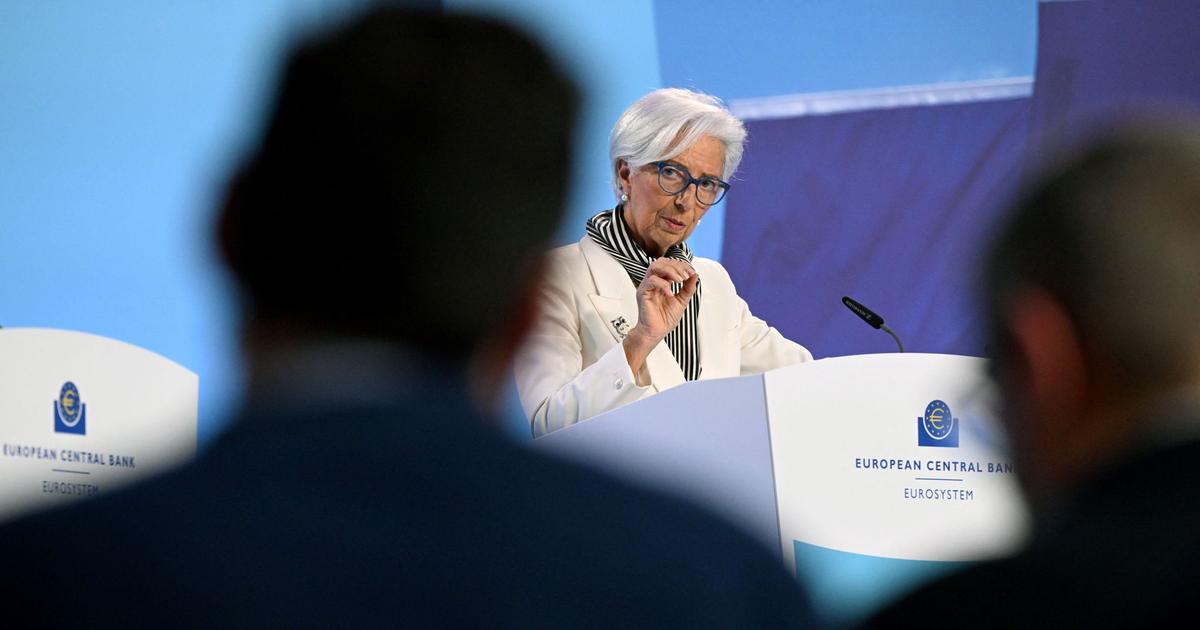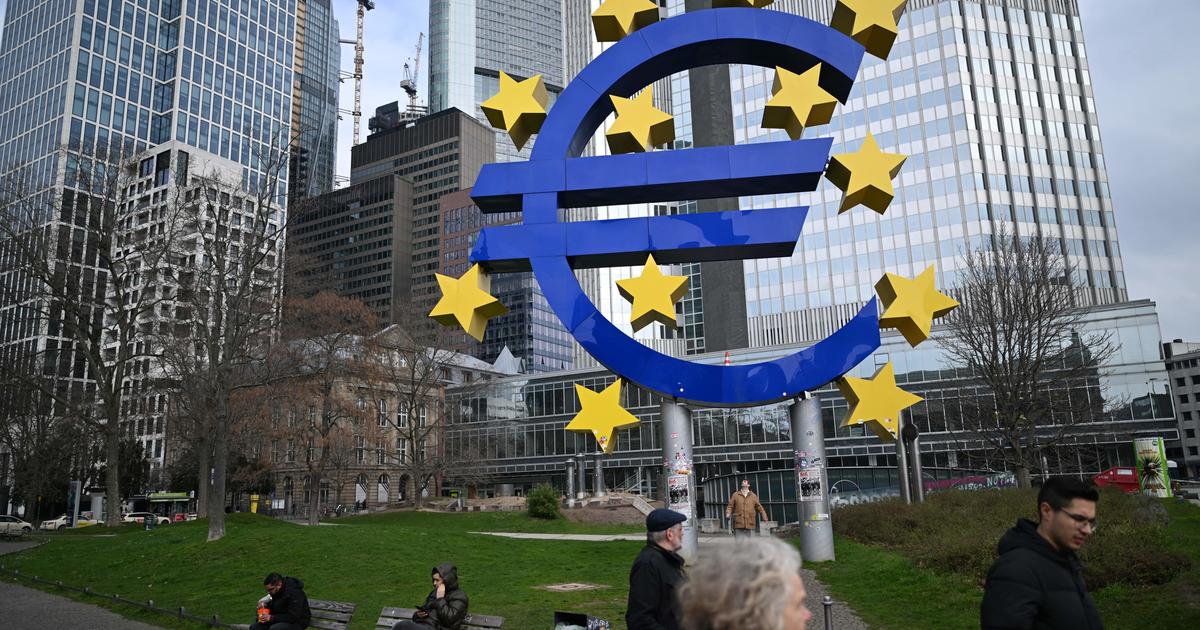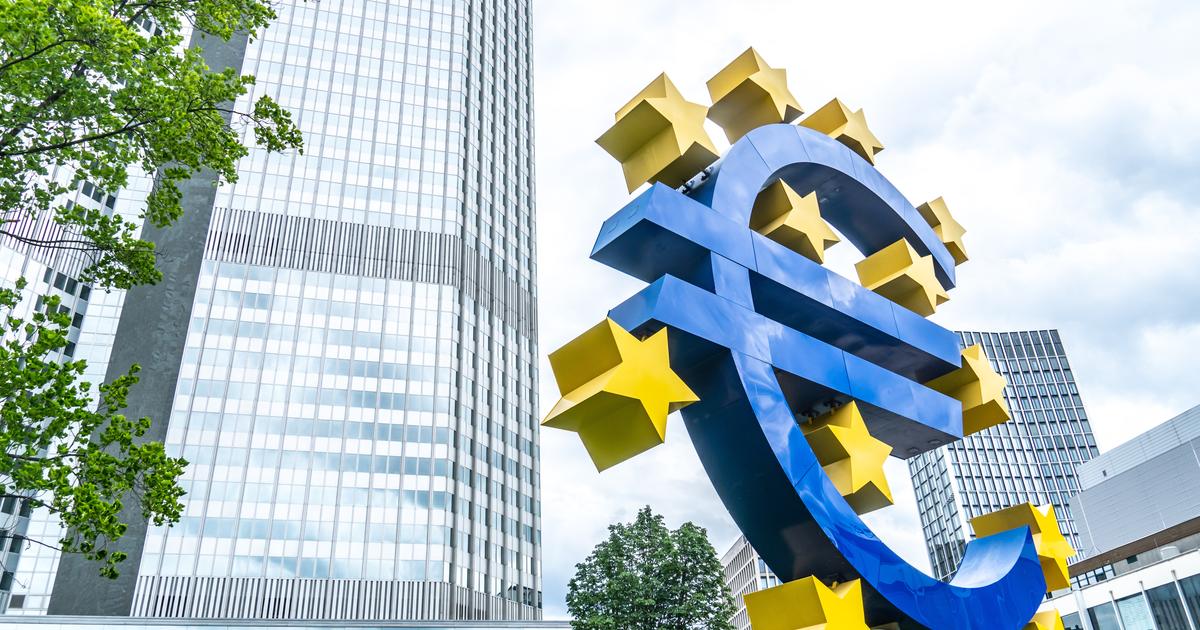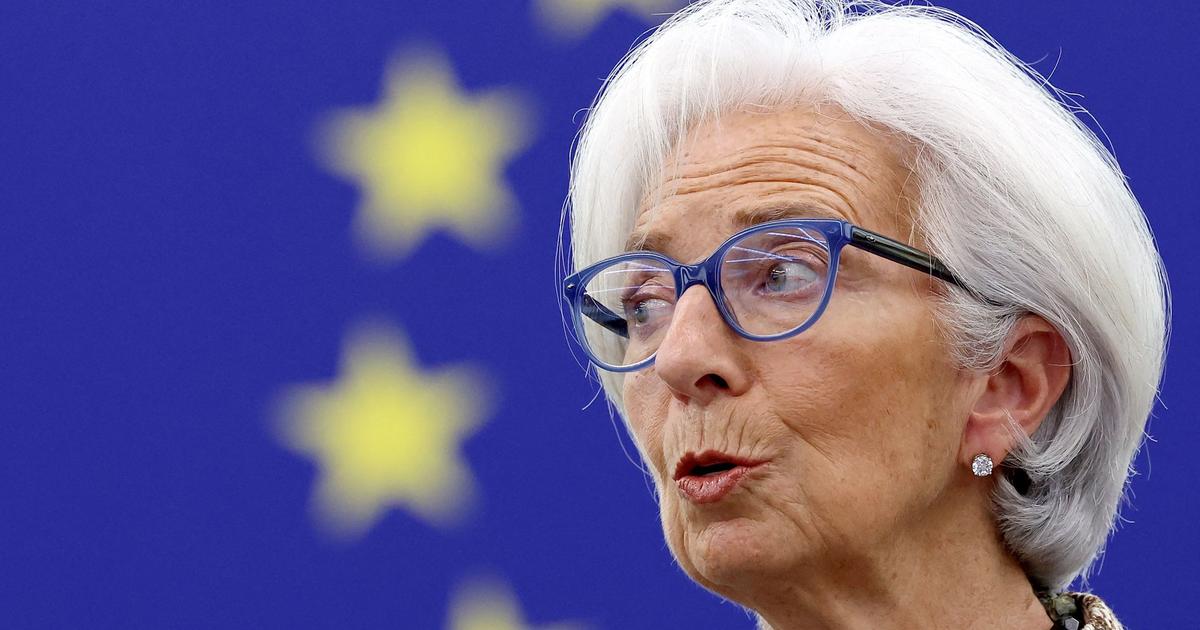In the fight against inflation, the European Central Bank (ECB) has long been criticized for its hesitant attitude.
Now the ECB has finally reacted.
But it won't get any easier for the central bank in view of the looming recession, warns former economics professor Volker Wieland in the guest article.
Frankfurt - Currently nine percent inflation in Euroland, between twelve and 23 percent in Eastern European member states, and in Germany, too, the ten percent mark may be cracked in winter.
We have never had that in the Federal Republic.
In December 1973 it was 7.9 percent.
Now, however, the European Central Bank (ECB) is finally fighting inflation with an interest rate hike that has often been described as “historic”.
This is the turning point.
The central bankers have inflation under control again.
For real?
Hardly likely.
Sure, the ECB hiked rates by the highest rate ever, raising all three rates by 75 basis points.
This puts the main refinancing rate at 1.25 percent and the top refinancing rate at 1.50 percent.
However, the situation on the money market is determined by the banks' deposit rate at the ECB of 0.75 percent.
voice of economists
Climate change, corona pandemic, Ukraine war: Rarely before has interest in the economy been as great as it is now.
This applies to current news, but also to very fundamental questions: How do the billions in corona aid and the debt brake go together?
What can we do about the climate crisis without jeopardizing our competitiveness?
How do we secure our pension?
And how do we generate the prosperity of tomorrow?
In our new series ,
Voice of the Economists
, Germany's leading economists provide guest contributions with assessments, insights and study results on the most important economic issues - profound, competent and opinionated.
As a reminder, maintaining price stability is the primary task of the central bank.
The importance of stable prices has almost faded into the background in the minds of consumers in the euro area over the years due to low inflation.
In 2020 and 2021, the ECB put its approaches and guidelines to the test in a strategy review.
The main focus was on the risk that inflation could be too low.
In addition, the ECB dealt with all sorts of topics and decided to include climate protection aspects more in the monetary policy framework in the future.
ECB: Rising inflation risks for over a year
Meanwhile, inflation rose significantly after the Corona crisis.
No wonder, since the supply of goods and services collapsed temporarily while governments and central banks took far-reaching measures to support demand.
When there is high demand and low supply, prices rise.
In addition, there were persistent bottlenecks in raw materials and preliminary products due to the high demand for durable economic goods.
It was already apparent in spring and summer 2021 that inflation risks had increased.
The ECB recognized far too late that inflation is not a temporary phenomenon.
With the Russian attack on Ukraine, inflation rose to unimagined heights: in the euro area, which is relevant for the ECB as a whole,
Only the older generation can remember inflation rates of 7.9 percent in Germany, when inflation rose so high in the winter of 1973 as a result of the Yom Kippur War and the oil embargo.
At that time, the Bundesbank braced itself against inflation and let interest rates rise.
As a result, nominal interest rates significantly exceeded the rate of inflation, and for an extended period of time.
In contrast to all other G-7 countries, double-digit inflation rates could be avoided in Germany.
ECB: Monetary policy remains expansive despite rate hike
The monetary policy of the ECB remains very expansive despite the supposedly historic rate hike.
Real interest rates – i.e. interest rates adjusted for inflation – remain deeply negative and support aggregate demand.
Even inflation adjusted for energy prices is now 5.8 percent.
Derivatives trading indicates inflation expectations averaging 3 to 4 percent over the next three years.
In contrast, the market only expects central bank interest rates to rise to around 2.5 percent.
The real interest rate would therefore remain negative.
also read
The end of the free lunch: the ECB before the crucial test
The end of the free lunch: the ECB before the crucial test
200 billion euros more for energy: Germany is threatened with recession
200 billion euros more for energy: Germany is threatened with recession
More and more regulations: Against Gulliver's syndrome
More and more regulations: Against Gulliver's syndrome
Inflation: ECB credibility at stake
Surveys by the Deutsche Bundesbank also show that the inflation expectations of private individuals have risen sharply.
That means people have lost confidence that the ECB can keep prices stable over the medium term.
There is a risk here that inflation expectations will decouple from the actual inflation target and that the most important asset of a central bank is at stake: its credibility.
The Governing Council will have a hard time.
He must agree to raise interest rates step by step over the next few months.
But once energy prices stop rising, the inflation rate will fall back to the core inflation rate.
Then many will want to explain the “success” instead of holding out until core inflation has actually fallen again.
A recession threatens in winter
With the high energy prices, a recession is approaching us in winter.
Voices are already being raised that the ECB would then have to stop raising interest rates and lower interest rates.
But recession alone will not end inflation.
Well-intentioned relief packages like those of the federal government are already supporting demand and ultimately have an inflationary effect.
Surveys of companies show that labor is and will remain in short supply.
Wage demands for inflation compensation plus will have to be satisfied at least in part and will lead to further price increases.
The ECB cannot remedy the energy shortage.
The federal government could have significantly increased the energy supply in the future: for example, if it - like Belgium - had decided to use all available nuclear power plants for another ten years, or if - as we expect from the USA - it had expanded its own gas production through fracking would have allowed.
Instead, the scarcity is exacerbated.
The Governing Council still has a long way to go to get inflation under control again.
About the author: Prof. Volker Wieland is an endowed professor for monetary economics and managing director of the Institute for Monetary and Financial Stability (IMFS) at the Goethe University in Frankfurt. Wieland did his doctorate at the US elite university Stanford and then worked for the US Federal Reserve. Between March 2013 and April 2022, the expert in monetary theory and monetary policy was a member of the German Council of Economic Experts. Wieland left the board at the end of the month.




/cloudfront-eu-central-1.images.arcpublishing.com/prisa/C3LDLHDAXBBCFCHWBPELHN64FU.jpg)










